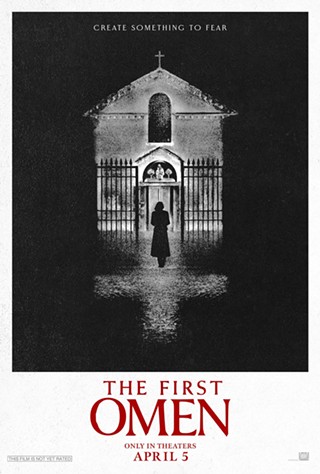Joshua Tickell is very serious about biodiesel. Also, he just married a folk singer; he hates pollution; and he has a video camera. In short: Watch out, America, because there's a documentary full of sincerity coming your way.
Tickell begins his film by claiming, against the evidence presented in the Bible, that some stuff happened more than 6,000 years ago, like tiny micro-organisms died and turned into petroleum.
Those little creatures created a lot of problems when people dug them up and started burning them. Tickell's film then goes on for 112 really heartfelt minutes, with frequent close-ups of Tickell's emotionally important face, to explain exactly what's wrong with this.
Which, frankly, is a good thing, as there's a lot wrong with burning petroleum. And Tickell does a pretty good job of enumerating the problems: Pollution, war and corruption stemming from a love of profits do, indeed, proceed directly and indirectly from the burning of oil.
The problem is that he tries to cover a little too much. He puts forward, in a few minutes, a case for the Iraq war being motivated by oil interests. This is a case that can be made, and Tickell starts to make it. He points out that there were meetings between Dick Cheney and oil executives before the war, that Paul Wolfowitz admitted that the weapons-of-mass-destruction story was invented to justify the war, and that, indeed, Iraq is full of oil.
But those three premises don't quite add up to the conclusion Tickell wants to draw. It's not that you can't make the case, and forcefully, that the desire for Iraq's oil was a strong factor in leading the United States to war (it was), and to be fair, that's not the only support Tickell offers, but the rest of what he gives is more circumstantial. Unfortunately, Tickell doesn't really produce a strong enough argument.
That's because he also wants to talk about a lot of other things, like Hurricane Katrina, and how it dumped tanker-loads of pollutants into the water, and how Louisiana is largely funded by the petro-chemical industry, and how there's a lot of cancer near petroleum-refining plants, and that the Environmental Protection Agency isn't doing everything it could to stop this. But again, he winds up with a group of premises that fall short of his conclusion—that Louisiana is not only funded by oil, but also has its policy dictated by oil companies. Again, a case can be made, but Tickell is off to the next thing, and the next thing, trying desperately to cover everything that is bad about oil.
In the process, he does bring a lot of this badness to light. But what he should have done is made a slightly shorter film about his main passion, which is biodiesel. It's on this topic that he makes a compelling argument: Diesel cars can run on biodiesel (i.e., diesel fuel made from plant sources). The process of making biodiesel is more energy-efficient than making the ethanol that is being touted as a replacement for gasoline, and more energy-efficient, surprisingly, than making gasoline itself.
Tickell doesn't just look sincerely into a camera and intone facts in a self-important voice (though he does do that); he also walks the walk, having gone around the country and the world to demonstrate the use of biodiesel in a biodiesel-powered vehicle, and to support business models that use biodiesel fuels.
In the end, he even does the responsible thing and discusses problems with plant fuels, and offers some possible solutions. These fuels are not nonpolluting, for example, and some plant fuels aren't really economically feasible. Tickell addresses these issues and discusses new (and old) research that could lead to ways to make alternative fuels more attractive.
Still, while the later segments on biodiesel were strong, this isn't a terribly good film. Tickell has the earnestness of a teenager with a guitar and a cause, which is grating. He interviews a lot of people in support of his position, and some of them are well-spoken, but he spends too much time with Naomi Klein, who thinks that everything can be reduced to a metaphor about "loss of stories" and the need for father figures, which is, at best, annoyingly reductive. Tickell's onscreen graphics are slickly produced, but the aesthetic is a little too hipster-cute for its purpose.
The worst feature of the film is the ending, when emotive music swells up as a series of titles flash on the screen in a greeting-card array of empowering messages. This would be OK if it lasted a couple of minutes, but it goes on and on, as though Tickell had filmed 15 ending sequences and wanted to use them all. After the fifth ending, I started to think Frodo was gonna leap out and give a teary farewell to Samwise.
So, in short, I, a grouchy old aesthete who spends his days teaching logic and critical reasoning, found the film unsatisfying in that it included some weak arguments and looked and sounded like it was made by young Sincero McHeartfelt after his freshman year at Oberlin. I still think that Fuel is worth seeing; I just don't think it's worth enjoying.










